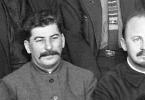This note is addressed to those who still have not learned how to determine how many letters n write in one word or another. Or those who re-read the rules for the tenth time and cannot understand them. Make yourself tea, make sandwiches. The conversation will be serious.
How to reduce the probability of correct spelling
Easily. Write at random or because it looks so "beautiful". Or first and second at the same time.
How to increase the likelihood of correct spelling
Do not be lazy and do not skip any of the points of the algorithm. Only then will you bring the skill of determining the number of letters n in a word to automatism.
Aerobatics - determine the amount n on the run.
You can, but not right away.
Sequencing
To begin with, we always determine the part of speech. You need to do this on the question that we ask by the way.
- Noun - who? what?
- Adjective - which?
- Short adjective - what?
- adverb - as?
- Participle - which?
- Brief Communion - what?
- verbal adjective - which?
You already have a question: how to distinguish between those parts of speech that answer the same question?
Adjectives and participles

The adjective is derived from the noun, and the participle is derived from the verb.
Long is an adjective because it answers a question which? and is derived from a noun length.
strewn is a participle because it answers a question which? and is derived from the verb strew.
By the way, participles also have characteristic suffixes. In the forms of the present tense: -usch-, -yusch-, -ash-, -yashch-, -em-, -om-, -im-. In past tense forms: -vsh-, -sh-, -in-, -t-, -enn-, -yonn-, -nn-. These suffixes are used as an additional check to see if you have identified the correct part of speech.
Participles and verbal adjectives
Now we have one more problem: both participles and verbal adjectives are formed from the verb. Both answer the question which?. How to distinguish them?
First, the verbal adjective is formed from the verb not perfect look, and the participle is formed from the verb of the perfect form.
How to determine the type of the verb? Easily. If he answers the question what to do?, then the view is imperfect (denoting an incomplete action). If he answers the question what to do?, then the view is perfect (denoting a completed action).
Secondly, verbal adjectives do not have dependent words.
A dependent word is a word to which you can ask a question from the main word.
Try to determine for yourself which of these words is a participle, and which is a verbal adjective: a solved problem, a loaded car.
Answer. Solved- participle. Here are all the arguments: it answers the question which?; derived from the verb decide; this verb is perfective because it answers the question what to do?.
loaded- verbal adjective. And here's why: answers the question which?; derived from the verb ship; this verb is imperfective because it answers the question what to do?; dependent words are missing.
In order for a verbal adjective to become a participle, it is enough to do one of two things:
- Add dependent word.
A man-loaded car. loaded by whom?- human. Now this is communion. - Change the form of the verb.
loaded car. Formed from a verb download which answers the question what to do? and therefore belongs to the perfect species.

Short adjectives and short participles
The sequence of actions is as follows:
- Realized that the word answers the question what?.
- We think from what full form the word is formed.
- We determine the part of speech in the full form (we read the differences between adjectives and participles above).
Here is a table to illustrate.
Hooray. Now we know what part of speech our word belongs to.
Applying the rules
See how easy it is when we know the part of speech:
We also write two letters n in participles with suffixes -ova- and -Eve-.
In the word asphalted write nn because there is a suffix -ova-.
Make sure that -ova- or -Eve- were suffixes. In words forged and chewed there are no such suffixes. They have roots cove- and zhev-. These words contain one letter n, because they are verbal adjectives.
You also need to remember the words: unexpected, unexpected, seen, unseen, seen, read, heard, unheard, desired. Just remember them.
It remains to deal with adjectives, nouns and adverbs.
In adjectives and nouns we write one n only in one case: if there is a suffix -en-, -yan-, -in-: leather en th, silver yang oh, chickens in oh, sand en ik. Exceptions: glass, tin, wood.
We write in adjectives nn in the following cases:
- In suffixes -he N-, -enn-: station he N th, time enn th.
- If the word is formed from a noun whose stem ends in -n: tuma nn th.
Please refer to the second point Special attention. Without it, you would write in a word fog one letter n because there is a suffix -en-. But this word has no suffix -en-! Why? Because -en- is part of the root. The word is formed from a noun fog, whose base ends with n. Adjectives are written by analogy pocket, long, citric and many others. Don't forget this rule.
The words windy, oily, oil are not adjectives, since they are formed from verbs: wind, oil. Here everything works according to the rules of verbal adjectives and participles. Or just remember that these three words are spelled with the same letter. n. In other cases, already with two (wind n oh no wind nn th).
OK. What about short adjectives?
Everything is simple here: the same number of letters are written in them n, how many and in total.
What about adverbs?
It's the same story here. We write the same n how much in the word from which the adverb is formed.
Slowly- adverb because it answers a question as?. Formed from an adjective slow. In this adjective we write nn in suffix -enn-, therefore, in the adverb we write the same way.
Attention! An adverb can be formed not only from an adjective, but also from other parts of speech. For example, confusingly explain. The logic here is tricky. Adverb confused derived from the word confused, which is a verbal adjective (answers the question which?; no dependent words; formed from an imperfective verb confuse). Insofar as confused- verbal adjective, then in it we write one n. And if so, then in the dialect, which is formed from it, we write the same amount.
A little exercise. Explain the setting n-nn in a sentence.
Pickled mushrooms, fried sausage, buttered rye cakes, condensed milk, beef liver, baked potatoes, slightly salted in ash, and a sip of a drink infused with some outlandish drug will seem delicious on fresh air to the most sophisticated gourmet.
In adjectives, one letter H is written in suffixes -IN-, -AN-, -YANG-.
For example: swan(in suffix -IN - one letter H is written) leather(in suffix
-AN- one letter H is written) woolen(in suffix -YAN- one letter H is written.
Remembering three suffixes in which one letter H is written is very easy. Need to know p the first letter of the alphabet and the last - A and Z. We add one letter H to them and get suffixes - AN, YING, YANG .
You can learn a rhyme that will help you remember the suffixes of adjectives that are written with one letter N.
For adjectives long ago
Written in scholarly books
When AN, YING, YANG, then H is one
And no more excess.
Suffix -IN- called "animal". With the help suffix IN adjectives are formed from animate nouns denoting animals, insects, birds.
MOUSE IN YY = MOUSE + IN
MOSQUITO IN YY \u003d KOMAR + IN
Nightingale IN YY \u003d Nightingale + IN
In adjectives MOUSE IN YY,MOSQUITO IN OY, NIGHTINGALING IN YY the "animal" suffix is written - IN - with one letter N.
Suffixes - AN-, -YAN - are written in the names of adjectives denoting the material from which the object is made:
SKIN AN YY \u003d SKIN + AN
PESC AN YY \u003d SAND + AN
SILVER YAN YY = SILVER + YANG
WOOL YAN OH = WOOL + YAN
CLAY YAN YY \u003d CLAY + YAN
Adjectives SKIN AN YY, SAND AN YY, SILVER YAN YY , WOOL YAN OH CLAY YAN YH are written with one letter H, since the suffix in them begins with the letters AND I .
Three adjectives should be remembered, the suffix of which begins with the letter I, but the letters H in it are written not one, but two. These are the exception words: TREE YANN YY, TIN YANN GLASS YANN YY.
The following riddle about WINDOW:
glass surface, wooden frame, pewter handle.
2. Two letters НН in adjective suffixes
Two letters H are written in the names of adjectives whose suffixes begin with the letter O or E. For example, EDITORIALS HE N YY, TRADITIONS HE N YY, STRAW ENN YY, CRANBERRY ENN YY.
Remember suffix - HE N- helps with HH UN - United Nations.
It is known that suffix - HE N- - UN fanatic.
It strives to be as similar to the UN as possible in everything. True, the difference between them is immediately noticeable: the suffix has - HE N- two H's, and his UN idol has two O's.
With the suffix - HE N -, in which two letters H are written, adjectives are formed most often foreign origin. For example, COMMISSION HE N EDITORIAL HE N YY, TRADITIONS HE N YY, REVOLUTION HE N YY
Two letters H are written in the suffix -ENN-.
Adjectives with the suffix - ENN- most often formed from nouns whose stem ends in several consonants: ARTS ENN YY, CRANBERRY ENN YY, LIFE ENN YY, FIRE ENN OH, ILLNESS ENN YY.
In Russian, there is an exception word, the suffix of which begins with the letter E, but the letters N in it are written not two, but one. This word is WINDY.
WINDY DAY
WINDY YOUTH
In the word WINDY, one letter H is written!
However, if the prefix WITHOUT appears in the word WINDY, then two letters H are written according to the rule.
WINDLESS NIGHT (there is a prefix in the word)
Remember the spelling of words WINDY andWINDLESS the following verse helps.
Windy young man, windy day!
You can easily remember:
I always write only one N!
Windless morning, day or night!
Without applying the rules of knowledge,
Write two N's without hesitation!
3. Two letters H at the junction of morphemes
Two letters H are written in the names of adjectives formed with the help of the suffix H from nouns with the stem starting with the letter H.
PLAIN = ravni H A+ H
LONG= LENGTH H A+ H
TRUE= ISTI H A+ H
outlandish= DIKOVI H A+ H
pancake = BLI H +H
The following poetic rule helps to write a double letter H in the adjective.
The mist one has
But if the city has become foggy,
Based on H and suffix H,
And it turns out,
Remember this case is strange.
4. Things to remember
There are several words in Russian that do not have the suffix H and suffer greatly from this. These words are often confused and erroneously write double HH in them.
Remember: in words SINGLE, GREEN, SPICY, ROSE, YOUNG, PORK one letter H is written, which is part of the root.
5. Analyzing examples
Let's determine how many letters H are written in the following adjectives and why.
GOOSE(this word has an "animal" suffix -IN -, in which one letter H is written),
TELEPHONE(this adjective is formed from the noun TELEPHONE, the stem of which ends with the letter H. The suffix H is added. Therefore, we write the word TELEPHONE with two letters H),
STRAW(the suffix of this adjective begins with the letter E, so we write HH),
LINEN(the suffix of this adjective begins with the letter I and denotes the material from which the object is made, so we write one letter H),
WINDY(this is an exception word in which one letter H is written),
INFECTIOUS(the suffix of this adjective begins with the letter O, so we write HH),
GLASS(this is an exception word that is included in the riddle about the window; therefore we write HH).
6. Algorithm for writing Н, НН in adjective suffixes
Choosing H, HH to write in the suffix, you can use the algorithm.
Table 1. Algorithm for writing Н, НН in adjective suffixes ()
7. Н, НН in short adjectives
It should be remembered that in short names adjectives are written as many N as in full ones: traditional - traditional, smart - smart.
Bibliography
- Russian language. Grade 6 / Baranov M.T. and others - M .: Education, 2008.
- Babaitseva V.V., Chesnokova L.D. Russian language. Theory. 5-9 cells - M.: Bustard, 2008.
- Russian language. 6 cells / Ed. MM. Razumovskaya, P.A. Lekanta. - M.: Bustard, 2010.
- Reference table().
- Presentation ().
- Additional exercise ().
Homework
Task number 1
Insert, where necessary, the missing letters H or HH. Justify your answer.
Yu..y, y..at, silver..y, aviation..y, long..y, tin..y, straight..y, hurricane..y, debatable..y, swans..y, wind..th, windy..oh, windless..th, autumn..th, morning..th, morning..ik, glass..th, harder..ik, silver..th, silver..ka, shameless..ik, seme..oh, ice..oh, cranberry..oh, hemp..oh, hemp..ik, sparrows..oh, nightingales..oh, stirrup..oh, seme..oh, red banner .. th, triumph .. th, life .. th , old .. th, guests .. th, guests ple..th, whole..th, drunk..th, rya..th, blush..th, blush..a, fire..th, sandy..th, craft..th, secondary..th, pension .. th, clay .. th, beast .. th, offspring .. th, precious .. th, bouillo .. th, flat .. th, half-dead .. th, wild .. th, not quite .. th, sheep..th, infectious..th, sympathetic..th, seventh..th, countless..th, friendship..th, oats..th, one-time..th, ants..th, wave..th, mice..y, svi..oh, pigs..a, firewood..ik, oil..ik, mali..ik, axis..ik, ripples..ik, friends..ik, moshe..ik, wind..ik, side..ik, smart..yy, ko..itsa, leeward..yy, sandy..ik, travel. .ik, vlasya..itsa, vishe..ik, weathered..y, chicken..oh (ataman).
Task number 2
Make the “silent” table speak: in place of the gaps, write down necessary words. Write down adjectives with the studied spelling from the poems.
1. He slept, all radiant, in an oak manger,
Like a ray of moon in the hollow of a hollow.
He was replaced with a sheep ... skin
Donkey ... ox lips and nostrils.
B. Pasternak
2. And there is a birch in so ... oh silence,
And snowflakes burn in golden fire.
S. Yesenin
3. Do you love ice ... oh January,
Windless, brutal cold.
And I am a fierce February,
A blizzard, a daring snowstorm.
H / HH in participles and verbal adjectives
Spelling Н or НН in passive participles is one of those rules that regularly make mistakes in dictations, essays and tests.
First of all, remember the rule: In the suffixes of full passive participles, two letters H are written, for example, CUT TREES. In the suffixes of short passive participles, one letter H is written, for example, TREES HAVE BEEN CUT.
But since full passive participles are sometimes very similar to adjectives, to avoid mistakes, it is useful to remember four conditions under which two letters H are written:
1) the sacrament has a prefix (except NOT-), for example, DRIED MUSHROOMS;
2) the participle was formed from the verb of the perfect form, for example, SOLVED PROBLEM - from the verb DECIDE (what to do? - perfect form);
3) the participle has dependent words, for example, DRIED (where?) MUSHROOMS IN THE OVEN;
4) The participle is formed from the verb using the suffixes -OVA- or -EVA-, for example, EXCITED PERSON.
If a word does not have any of these features, then it is spelled with one N.
In addition, there are several words with two letters H, the spelling of which must be learned in the same way as we memorize the words-exceptions: UNSEEN, UNHEARD, UNEXPECTED, UNGUESSED, UNINTENDED, WANTED, PRECIOUS, SACRED, SMOOTH.
Reasoning patterns
(1) How many N should be written in the participle from the phrase LAUNCHING GARDEN? First of all, you need to see if the sacrament has a prefix. In our case, there is a prefix, which means that this word must be written with two N: NEGLECTED GARDEN.
(2) How many N should be written in the participle from the phrase BROKEN LOOK? First of all, we look to see if the sacrament has a prefix. In our example, the participle does not have a prefix, therefore, the next step is to determine the type of verb from which this participle was formed. BROCHE_NY was formed from the verb TO THROW (what to do?) This verb is perfective, which means that in the participle you need to write two letters H: LOOKING OUT.
(3) How many N should be written in the participle from the phrase OVEN Roast FISH? The participle in this phrase has dependent words: HEAT (where?) IN THE OVEN. Therefore, in the sacrament it is necessary to write two letters H: FISH ROASTED IN THE OVEN.
(4) How many H should be written in the participle from the phrase ASPHALTED HIGHWAY? Since this participle has the suffix -OVA-, two letters H must be written in it: ASPHALTED HIGHWAY.
(5) How many N should be written in the word WEAVING from the phrase WEAVING BASKET? Since it has no prefix, no dependent words, no suffixes -OVA- or -EVA-, and also because it was formed from the verb of the imperfect form WEAVING (what to do?), You need to write one letter H: WITTED BASKET.
AN EXERCISE
“How can I not love him?” she said to herself, delving into his frightened and at the same time delighted look.
Levin immediately thought of this, but, in spite of this, he decided that Sviazhsky’s views of him were only his baseless assumption ...
(Leo Tolstoy, Anna Karenina)
Well, an uninvited guest,
Perhaps the father will come in!
I ask you to serve the young lady in love_n oh!
Scarlet ribbons were woven into her
In two blond braids,
Flowers, outfits brought
Unseen beauty.
Who wants to welcome us, if you please;
The door is open for the called and the uninvited...
(A. S. Griboyedov, "Woe from Wit")
Parsley, you are always with a new thing,
With a torn elbow.
(A. S. Griboyedov, "Woe from Wit")
... Information was requested from the hostile ministry about the measures that were in last decade applied…
(Leo Tolstoy, Anna Karenina)
And that consumptive, relative to you, enemy of books,
In the academic committee that settled ...
(A. S. Griboyedov, "Woe from Wit")
And then she thinks -
God knows why
That the starry sky is sand
Sprinkled leaf,
Constantly day and night on the road
A marvelously well-coordinated carriage ...
(N. A. Nekrasov, "Russian Women")
Levin always came to Moscow agitated, hurried, a little embarrassed and irritated by this embarrassment, and for the most part with a completely new, unexpected outlook on things.
(Leo Tolstoy, Anna Karenina)
No, in this cut down forest
I won't be lured
Where there were oaks to heaven
And now the stumps are sticking out!
(Nekrasov, "Russian Women")
He drove to the fortress ballet on many wagons
From mothers, fathers of rejected children?!
(A. S. Griboyedov, "Woe from Wit")
Stepan Arkadyevitch had already gone downstairs, undressed, washed again, put on a frilled nightgown and lay down ... (Leo Tolstoy, Anna Karenina)
You will come to Nerchinsk if you
The road won't kill you.
Hardly four miles an hour
Zakova_n is coming ...
(N. A. Nekrasov, "Russian Women")
With a face mutilated with passion, pale and with a trembling lower jaw, Vronsky hit her in the stomach with his heel and again began pulling on the reins...
(Leo Tolstoy, Anna Karenina)
Darya Alexandrovna's eyes widened at this elegant, unseen carriage...
(Leo Tolstoy, Anna Karenina)
Finally married his daughter
I took it - shish, in the service - nothing.
(A. S. Griboyedov, "Woe from Wit")
She remembered how she almost told a confession that her husband's young subordinate had made to her in Petersburg...
(Leo Tolstoy, Anna Karenina)
Towards dinner they arrived: an old cousin of Alexei Alexandrovich ... ... and one young man recommended to Alexei Alexandrovich for the service.
(Leo Tolstoy, Anna Karenina)
To the pen from the cards? and to the cards from the pen?
And the appointed hour for the ebb and flow?
(A. S. Griboyedov, "Woe from Wit")
I'm running, I won't look back, I'll go looking around the world,
Where there is a corner for offended feeling! ..
(A. S. Griboyedov, "Woe from Wit")
Stepan Arkadyevitch ... in this playful courtship ... and accidentally went so far that he no longer knew how to get back ...
(Leo Tolstoy, Anna Karenina)
What is the politest name for such people?
Tenderer? - he is a man of the world,
Notorious swindler, rogue:
Anton Antonych Zagoretsky.
(A. S. Griboyedov, "Woe from Wit")
For the fact that he softened the angry guest,
I wanted to compliment.
(A. S. Griboyedov, "Woe from Wit")
You sit for an hour
Unoppressed, cheerful mind
Working meanwhile...
(N. A. Nekrasov, "Russian Women")
In the suffixes of Russian adjectives, there can be either one letter "n" or two. Confusion with suffixes is considered a gross mistake, and in order to prevent it, you need to remember just a few rules.
In what cases is it necessary to put "n", and in which - "nn"
First of all, it must be remembered that adjectives can be formed from different parts of speech - nouns, verbs, participles.
- Almost always, in adjectives derived from a perfective verb, a double suffix "nn" is put - "folded", "carried out". The exception to this rule is the word "wounded".
- Double "nn" in verbal adjectives is placed in the presence of the suffixes "ova" and "eva" - for example, "organized". Exceptions are the words "chewed" and "forged", where "n" appears only one.
- Also, "nn" is placed in cases where the adjective has a prefix and is formed from a verb with a prefix. For example - the word "wrapped" from the word "wrap". Exceptions apply to words with the prefix "not" - "unsolicited", "untrodden" and so on.
- In some phrases, adjectives come with an explanatory word - for example, "potatoes baked in ashes." If there is such an explanation, you need to put the suffix "nn", but if we are talking just about "baked potato", then the suffix will look like "n".
- Adjectives derived from a noun may have a stem with an "n" at the end - in which case the suffix will be "nn". The same applies to the presence of the suffixes "onn" and "enn" in the so-called denominative adjectives, especially if the adjective with "enn" comes from a noun ending in the syllable "me" (for example, "time" - "temporary").
Single spelling "n"
When is only one letter "n" put in the suffix?
- The easiest way to remember the rule regarding short participles is that only one letter “n” is always put here. Examples - completed, installed, finished. Two "n" in a row in these and similar cases are never put.
- If the adjective is formed from the name of a noun (for example, "clay" from the word "clay") - one letter "n" is placed in the suffixes "an", "yan" and "in".
- For adjectives formed by verbs, and for participles of the full form, next rule- the suffix "n" is put if there is no reason to put the suffix "nn". We have listed the rules by which “nn” can be placed above - it will not take much time to check the word for compliance with them.




